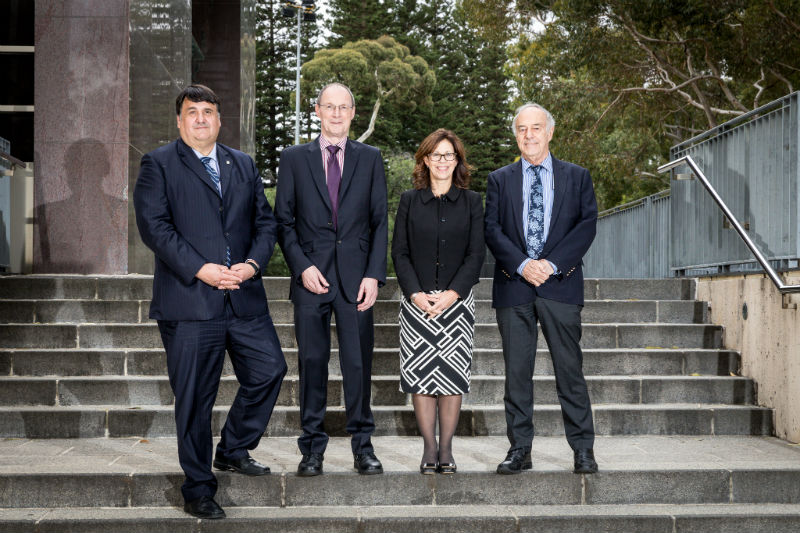
The Worldwide Universities Network is pleased to announce that Professor Peter Lennie will be its new Executive Director, commencing in August.
How long have you been involved with WUN and in what capacities?
I’ve been involved with WUN since 2012, when I brought the University of Rochester into the network. I’ve been active as a member of the Academic Advisory Group, and more recently as a member of the Partnership Board.
What did you see in the role of Executive Director that attracted you to it?
I’m a passionate believer in the benefits of universities being engaged internationally. Of course, they’ve always sought to engage talent from all over the world, and international research and scholarly collaborations are commonplace in major universities, but there’s a lot of value to be added by a network that can bring partners together systematically in ways that make the whole more than the sum of the parts: through enlarging opportunities for research collaboration, through programs that help students develop as global citizens, and through projects that draw on the diverse locations and cultures of partners to illuminate problems that concern them all.
What key skills and fresh perspectives will you bring to the position?
Although universities in different countries have remarkably similar missions, they differ greatly in how they go about them. Anyone interested in improving research and education can learn an enormous amount from looking at how universities in different parts of the world set about discharging their missions. I hope that I can add some value in this aspect of WUN’s activities.
As a leading global network, WUN requires leadership that is inspiring and thoroughly experienced. How has your previous experience prepared you for this role?
Research is at the core of WUN’s mission, and it’s important that the Executive Director understand what’s involved. I’ve had a rewarding hybrid career as a scientist and later as an administrator. As a scientist I know well the creative highs and lows of research, and how hard are the challenges and rich the rewards of discovery. As an administrator I know how important it is to nurture talent and make it as easy as possible for the researcher to succeed.
What major challenges does WUN face now and in the future and how will you help it to navigate them?
WUN challenges are the varied challenges faced by its members. What’s striking is how similar these are in all countries—concerns about support for research; about constraints on the kinds of research that can be undertaken; about the affordability of, and access to, undergraduate education; about trust in universities; about how to prepare graduates for a world in which many traditional graduate careers will disappear, to be replaced by new careers we can’t fully imagine. Because these challenges are expressed in different ways in different countries, there’s an unmatched richness of experience and wisdom among partners that WUN can harness to make a real contribution to the solutions.
Good leaders are often good listeners. How open are you to hearing from people from all parts of the network about their concerns and passions? And how will you signal your openness to hearing people’s views?
I think of myself as a good listener, and to the extent that I’ve been a successful academic administrator it’s been substantially due to encouraging, and probing, and taking advice from, people who know more about what they’re doing than I do. For an organization like WUN, which brings together a diverse network of enormously talented people, it’s especially important that the Executive Director draw on the richness of expertise that results from the varied geographies and cultures in which member universities work. I’ve already started on that.
Within the four broad Global Challenges that shape WUN’s research efforts, what are some of the more pressing challenges facing the world that you believe WUN should focus on and why?
The potency of a network like WUN starts with the individual strengths of its members as major research universities. Many of these have unique constellations of strengths in particular disciplines, and/or access to unique resources. WUN’s success has to be built on these strengths, through helping assemble them most productively. But beyond that the network can add special value through its capacity to harness the partners on problems where a comparative approach that reflects their diverse locations and circumstances can be particularly beneficial.
What is one message you would most like to convey to WUN member universities and their representatives as you step in to lead the network at this point in its history?
WUN has already demonstrated its value in nurturing research on problems of global interest. In a world that is ever more interdependent and interconnected, despite some recent push to the contrary, universities have a special role. They’re distinctive in their internationalism and openness to ideas, and in the concentrations of intellectual power that they can bring to bear on important problems. They therefore have a special opportunity and obligation help the world navigate the changes—an opportunity that I want to ensure is magnified through partnership in WUN.
What do your significant others think of your new appointment?
My wife, Frances, and our adult children, Ingrid and Ian, are active global citizens, and share my enthusiasm for international engagement and its benefits. They care a lot about what WUN represents and are pleased that I’m taking the position.
– As Executive Director, Professor Lennie will be a member of the WUN Partnership Board, reporting to the Chair, Professor Martin Paul (Maastricht University) with the WUN Global Steering Group. He succeeds Professor John Hearn, who completes his service on 31 July 2018.
Photo: WUN Partnership Board members Professor Martin Paul, Professor Peter Lennie, Professor Dawn Freshwater (UWA), and Professor John Hearn.
